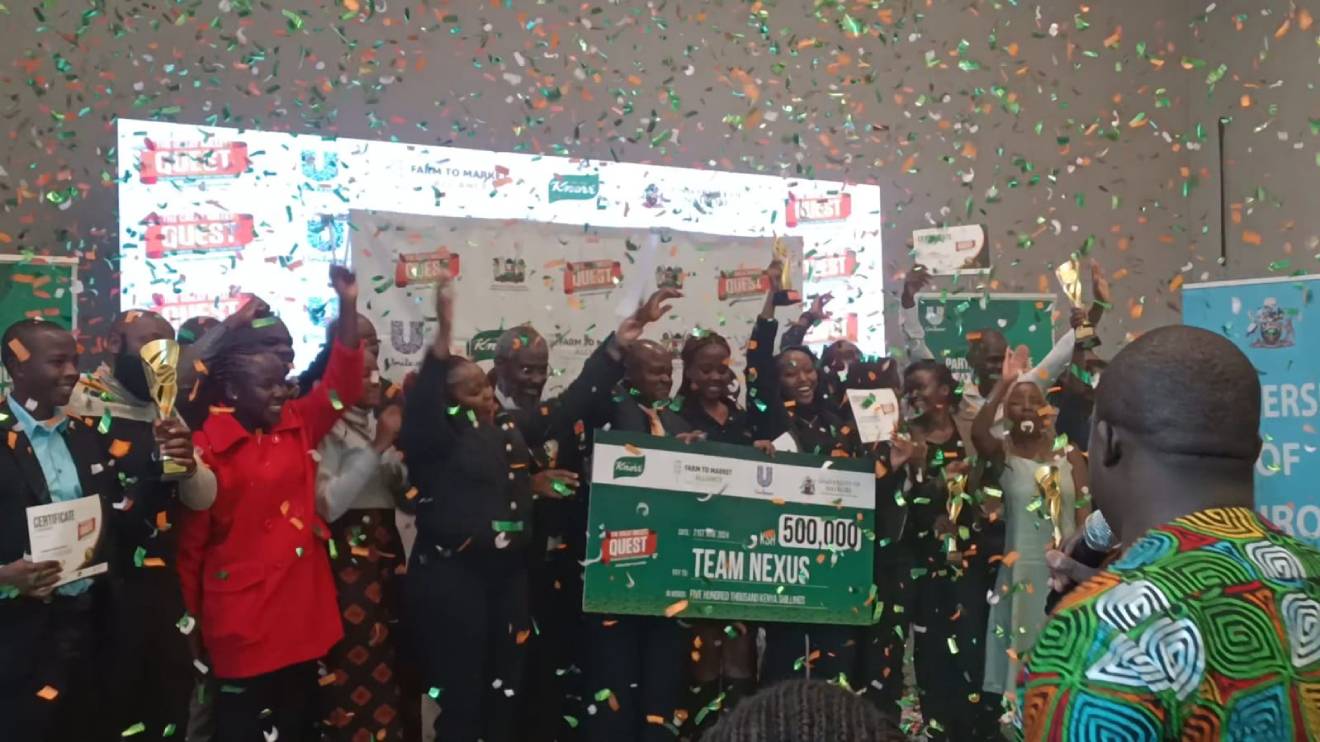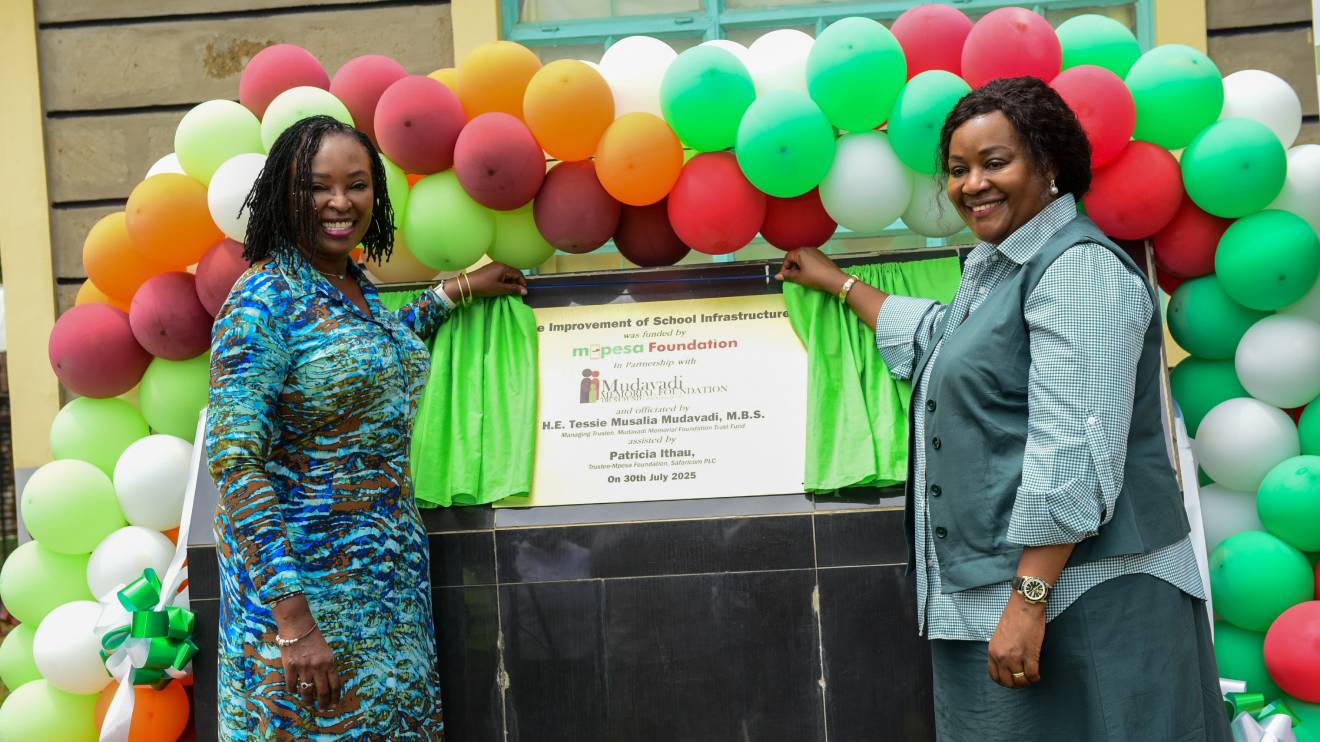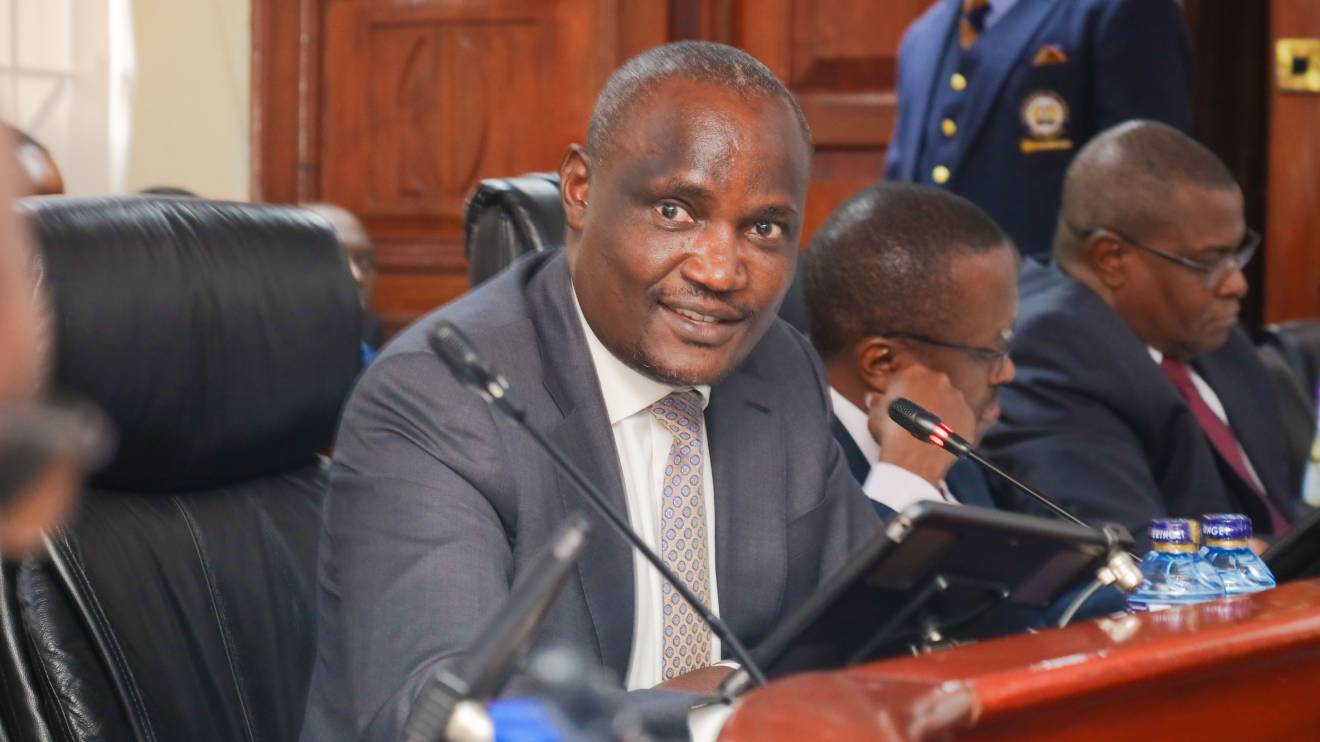The winners of "The Great Millet Quest," a competition designed to champion sustainable and innovative millet-based products, have been announced.
The winning team, University of Nairobi's Team Nexus, impressed the judges with their creation – Milcracks.
Milcracks are healthy, probiotic-infused crackers made from millet and essential seeds.
Designed to be enjoyed as a standalone snack or breakfast option, Milcracks specifically target micronutrient deficiencies, a prevalent health concern in Kenya.
Their victory secured them the top prize of Sh500,000.
Read More
Team Nexus expressed its excitement about its performance at the competition while noting its passion for making a difference in the food production landscape
“Developing our millet crackers fortified with probiotics has been an incredible journey. We’re not just excited about this win; we’re passionate about the opportunity it presents to innovate and make a real difference in Kenya’s food landscape,”Team Nexus stated.
"The Great Millet Quest" was launched in January 2024 by Unilever, Farm to Market Alliance (FtMA), and the University of Nairobi.
The competition aimed to unleash student creativity and explore the potential of millet, a highly nutritious and drought-resistant grain.
This initiative aligns with the United Nations' Sustainable Development Goal 2 of achieving food security and improved nutrition by 2030.
The competition garnered strong entries, with Team Kalmi taking home the first runner-up position for their precooked, ready-to-eat puffed millet product, earning them Sh250,000.
Team SoyMill secured the second runner-up spot with their innovative Soy Mill Noodles, receiving Sh100,000.
Millet: A Beacon of Sustainability
Millet offers a multitude of benefits. Nicknamed a "Nutri-cereal," it is packed with essential vitamins, minerals, protein, antioxidants, and starch resistance.
Additionally, its resilience to harsh climatic conditions, including drought, heat, and pests, makes it an ideal crop for smallholder farmers.
Requiring minimal water and fertilizer, millet thrives in diverse environments, offering a sustainable agricultural solution.
Unlocking Potential, Shaping the Future
The Great Millet Quest goes beyond awarding student innovation.
The competition directly addresses the challenges posed by climate change by promoting climate-resilient crops, contributing to national food security.
This initiative aligns with Kenya's Flour Blending Initiative, which seeks to make underutilized crops like millet more competitive and create new employment opportunities.
George Njoroge, FtMA Kenya Country Coordinator, highlighted the significance of millet, saying, “Millet, with its rich nutritional profile, holds the potential to address both food security and nutritional needs in Kenya’s rapidly expanding population."
"Its adaptability and versatility position it as a valuable crop for sustainable agriculture. Through partnerships with Unilever and the education sector, we aim to unlock its untapped potential and create a healthier, more resilient future.”."
Collaboration is Key
Dexter Adeola, Africa Platform Lead, Nutrition, emphasised the importance of millet in transforming the food ecosystem.
"Changing the food ecosystem requires creating demand for sustainable ingredients like millet," said Dexter Adeola, Africa Platform Lead, Nutrition, at Unilever.
"Unilever's Great Millet Quest project embodies this effort. Partnering with FtMA, we have trained over 800 farmers in regenerative agriculture, aligning with Unilever's Net Zero pathway. Youth involvement in innovation is crucial for a sustainable future, and this initiative empowers them to protect and shape it."
"The winning Innovations are set to create a 1.23 billion industry. Improved soil health, increase farmer, earnings by 283 per cent and provide employment for over 28000 people," Adeola added.
The Great Millet Quest serves as a prime example of how collaboration between academia, industry, and government can unlock the potential of sustainable crops like millet. By harnessing its potential, Kenya and Africa can ensure food security, improve livelihoods, and build a more resilient agricultural future.






-1752797011.jpeg)




